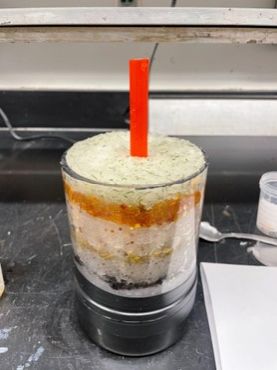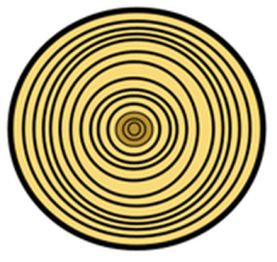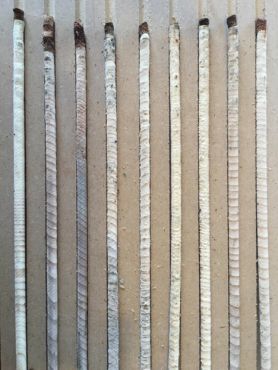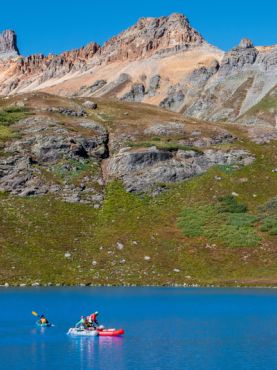Education
Class activities
Here you can find lessons to teach middle-schoolers about past climate and the ways in which scientists study it. These lessons feature in-class activities, using PReSto resources to supplement hands-on activities.
Each activity has an "instructor" sheet, which details the activity preparation, and a "student" sheet, which should be printed and distributed to students. Some activities must be prepared in advance, so read before diving in!

Lesson 1: Ancient Pollen: Unlocking the Secrets of the Past
Lakes are excellent collectors of pollen (and other wind-blown material), catching and preserving a record of the surrounding environment. By studying lake sediment cores, scientists can reconstruct past environments and understand how they have changed over time. In this activity, you will collect and analyze a simulated lake sediment core to learn about past plant communities and environmental conditions.

Lesson 2: Wisdom of the Tree Rings (Dendrochronology)
In this activity, you will study the tree rings of the Grand Canyon region like a dendrochronologist (tree ring scientist). By analyzing the rings in tree cookies and cores, you can discover the age of trees and learn about environmental conditions over many years. Trees are sacred beings in Navajo and Hopi cultures that provide valuable teachings if we observe them carefully.

Lesson 3: Ancient Wise Ancestors: Linking Ancient Wisdom to Modern Wisdom of the Tree Rings
In this activity, you will study rings in tree cores like a dendrochronologist (tree ring scientist). By analyzing the rings in cores, you can discover the age of trees and learn about environmental conditions over many years. Trees are sacred beings in Navajo and Hopi cultures that provide valuable teachings if we observe them carefully.

Extras
Scientific field work can take many forms. To read about a trip to gather sediment cores from lakes in Colorado, check out a photo journal of lake coring.
These lessons were created or adapted by Frank Telles, a graduate student at Northern Arizona University.

